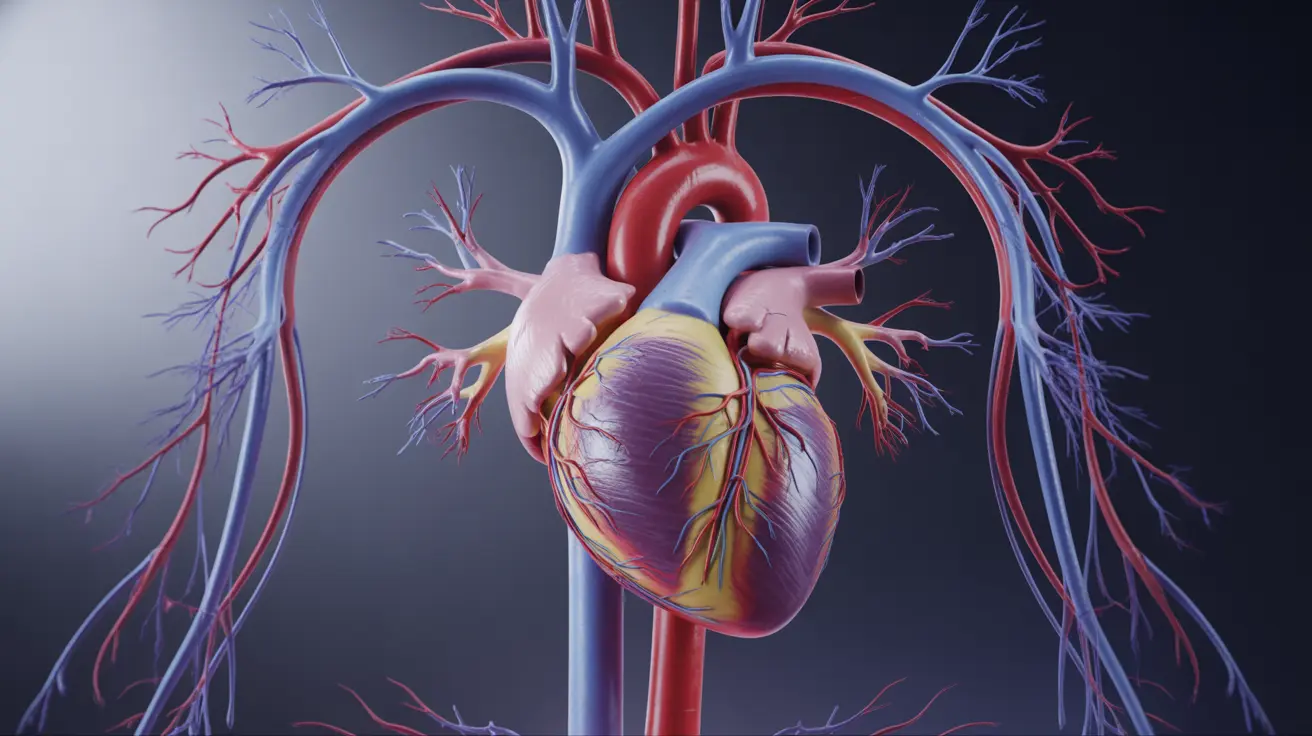The relationship between hyperthyroidism and high blood pressure is a significant medical concern that affects many individuals. When the thyroid gland produces excessive hormones, it can trigger various cardiovascular complications, including elevated blood pressure. Understanding this connection is crucial for proper diagnosis and treatment.
This comprehensive guide explores how hyperthyroidism impacts blood pressure, its symptoms, diagnosis, and treatment options, helping you better understand this important health relationship.
The Mechanism Behind Hyperthyroidism and Blood Pressure
Excess thyroid hormones significantly affect the cardiovascular system in several ways. These hormones increase heart rate and force of contractions, leading to a higher blood pressure. Additionally, they can make the heart more sensitive to adrenaline, further contributing to cardiovascular strain.
The thyroid's influence on metabolism also plays a role, as increased metabolic rate can affect blood vessel function and circulation patterns. This combination of effects often results in systolic hypertension, where the top number in blood pressure readings becomes elevated.
Recognizing the Warning Signs
Identifying hyperthyroidism-related blood pressure issues involves watching for specific symptoms:
- Rapid heartbeat or palpitations
- Anxiety and nervousness
- Excessive sweating
- Tremors in hands and fingers
- Unexplained weight loss
- Heat sensitivity
- Frequent fatigue
- Difficulty sleeping
These symptoms, especially when occurring together, warrant medical attention for proper evaluation and diagnosis.
Diagnostic Approach and Treatment Options
Healthcare providers typically begin with comprehensive thyroid function tests when suspecting hyperthyroidism in patients with high blood pressure. These tests measure levels of various thyroid hormones and thyroid-stimulating hormone (TSH) to confirm the diagnosis.
Treatment options generally focus on addressing the underlying thyroid condition, which often helps normalize blood pressure levels. Common approaches include:
- Antithyroid medications
- Radioactive iodine therapy
- Beta-blockers for immediate symptom relief
- Surgical intervention in specific cases
Managing Cardiovascular Health with Hyperthyroidism
Proper management of hyperthyroidism-related high blood pressure requires a comprehensive approach. Regular monitoring of both blood pressure and thyroid function is essential. Lifestyle modifications, including stress reduction techniques and appropriate exercise, can support overall cardiovascular health during treatment.
Long-term Outlook and Prevention
With proper treatment, many patients see significant improvement in both thyroid function and blood pressure levels. However, regular medical follow-up remains important to prevent future complications and ensure optimal health outcomes.
Frequently Asked Questions
How does hyperthyroidism cause high blood pressure and affect the heart?
Hyperthyroidism causes high blood pressure by increasing heart rate and the force of heart contractions. It also makes the heart more sensitive to adrenaline and affects blood vessel function, leading to elevated blood pressure.
What are the common symptoms of hyperthyroidism related to blood pressure changes?
Common symptoms include rapid heartbeat, palpitations, anxiety, excessive sweating, tremors, and difficulty sleeping. These symptoms often occur alongside elevated blood pressure readings.
Can high blood pressure caused by hyperthyroidism be reversed with treatment?
Yes, in many cases, treating the underlying hyperthyroidism can lead to normalization of blood pressure levels. Success depends on early diagnosis and appropriate treatment adherence.
How is hyperthyroidism diagnosed in people with unexplained high blood pressure?
Diagnosis typically involves comprehensive thyroid function tests, including TSH and thyroid hormone levels. Healthcare providers may also consider symptoms, medical history, and physical examination findings.
What are the risks of untreated hyperthyroidism on cardiovascular health?
Untreated hyperthyroidism can lead to serious cardiovascular complications, including persistent high blood pressure, heart rhythm abnormalities, and potential heart failure if left unaddressed for extended periods.




